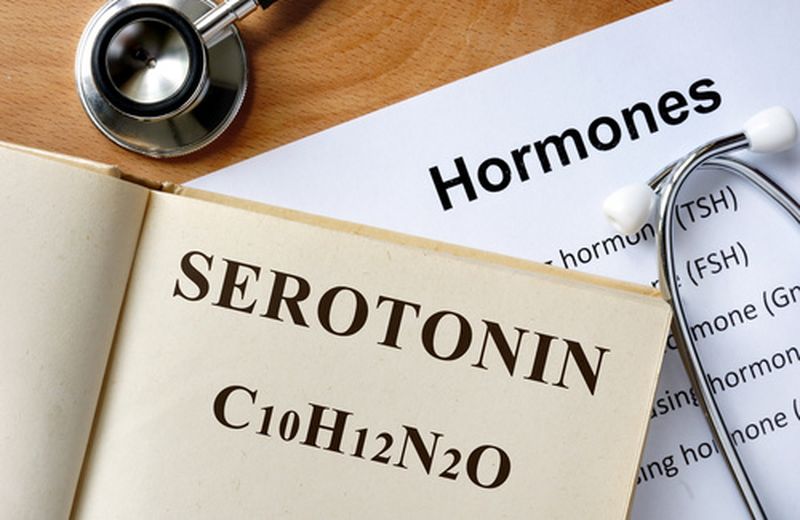Serotonin: what it is and what functions it has
Serotonin is a fundamental neurotransmitter for our psychophysical well-being. The good mood hormone helps us to support many features that perhaps we would never imagine.

We often hear about serotonin , serotonin collectors, useful supplements when there are mood imbalances, but what exactly is it?
What is Serotonin
Serotonin is a neurotransmitter , popularly known as the “good mood hormone “.
It is synthesized by the Central Nervous System and by some cells of the gastrointestinal system. It interacts at different levels with many receptors, about 7 and this makes its function very articulated.
First of all, let’s imagine the release of serotonin in the brain at the level of the Central Nervous System: one part interacts with the receptors of the target neurons of the synapses, so the serotonin enters the neuronal information flow, while the excess serotonin is either degraded or reabsorbed and stored in the terminal axonic, pre-synaptic.
In the event that serotonin is released in modest quantities or there has been an imbalance at the neuronal level, our mood undergoes pathological changes , even anxiety conditions , and if not intercepted in time they can lead to depression .
In these cases, drugs are often prescribed that uptake serotonin and inhibit its degradation so as to leave more of it available.
Read also Foods to help a good mood >>
The functions of Serotonin
As mentioned above, Serotonin comes into contact with numerous receptors and thus performs various functions that are extremely important for the well-being of our organism.
> Serotonin is the so-called “Good Mood Hormone ” as already mentioned, and it supports the mood balances of our central nervous system.
> Serotonin is a precursor of melatonin , the hormone that regulates the quality and duration of our sleep . In this ratio, if necessary, serotonin is converted into melatonin and regulates the rhythms of alternation between sleep and wakefulness.
> Serotonin is useful in weight control diets because it is able to control excess appetite and bulimic hunger. It is active against psycho-foods such as carbohydrates, chocolate, coffee and helps to limit their intake.
> Serotonin is a neurotransmitter that also speaks to our second brain : the gut and the enteric nervous system . It acts as a regulator of intestinal secretions, as it is contained in enterochromaffin cells, and controls conditions of constipation or diarrhea.
> Serotonin interacts with smooth muscle , so to speak with involuntary muscle. Promotes contraction of the arteries, bronchi, intracranial vessels, bladder.
Excess of Serotonin
In case of first signs of depression or even in conditions of overt depression, pharmacological treatments are often implemented which tend to re-uptake serotonin and not degrade it but to make it available to the synaptic system.
Even in herbal medicine we can access remedies that help integrate the serotonin shares such as griffonia , often in the form of 5-htp , the version of tryptophan absorbable by the body, amino acid precursor of serotonin, or hypericum .
It is important to respect the recommended dosages always under medical supervision, because the excesses of serotonin bring important side effects.
Serotonin syndrome is a possible consequence, with symptoms such as agitation, altered state, muscle twitching, tremors, fever , diarrhea .




























+ There are no comments
Add yours